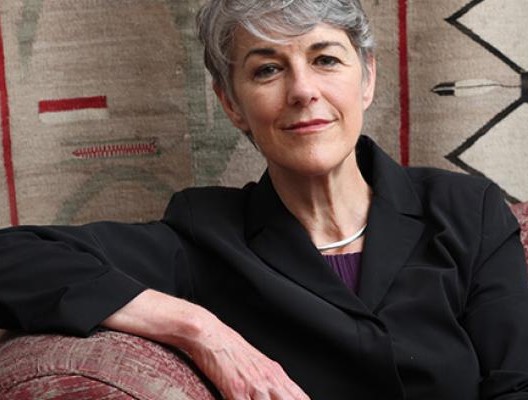Philosophy Professor Teaches Core Classics at Women’s Prison

For 20 weeks over the spring and summer, philosophy professor Christia Mercer commuted 40 miles north of Morningside Heights to teach Literature Humanities at Taconic Correctional Facility.
“Since Lit Hum readings are so transformative for my Columbia undergraduates, it seemed obvious that I should teach some of them when I taught in prison,” said Mercer, the Gustave M. Berne Professor of Philosophy.
In the spring, her class at the women’s prison in Bedford Hills, N.Y., read Greek classics in translation including Aeschylus’ Oresteia, Euripides’ Medea, and Aristophanes’ Lysistrata—central texts in Columbia’s Core Curriculum, which immerses undergraduates in the major works of literature and philosophy that have shaped western, and increasingly, global thoughts.
“For my incarcerated students, topics like justice, revenge, abusive violence, and the restriction of women’s power were particularly gripping,” she said. “The class was transformative for all of us.”
Over the summer she taught a course at the prison on Shakespeare’s mistaken identity comedy Twelfth Night. “Although some students struggled for a while with Shakespeare’s language, everyone loved the interweaving of characters and the play’s analysis of love, loyalty and self-exploration,” she said.
Related: Justice-in-Education Initiative Transforms the Lives of Current, Former Prisoners, Columbia News, Sept 14, 2015
The courses she teaches in prison are part of the Justice-in-Education Initiative, a new program based at the University’s Center for Justice whose campus partners include the Heyman Center for the Humanities and the Center for the Study of Ethnicity and Race.
Mercer says that like her students at Columbia, the women at Taconic are eager to explore new ideas and rethink old assumptions. “Once given the opportunity to do so, they are keen to do more.”
But she is concerned that currently there are limited opportunities for post-secondary schooling in U.S. prisons. “Studies show that people who receive education in prison are much more likely to gain employment, be role models for their own children—and most of my students have children—and become active members of their communities when they leave,” Mercer points out.
In her own work, she strives to include voices that have been sidelined by her discipline and to broaden contemporary philosophy by considering gender and politics.
She is the general editor of two book series published by Oxford University Press that attempt to contextualize the history of philosophy.
The first, Oxford Philosophical Concepts, explores changes in central philosophical ideas from ancient times to today. A forthcoming volume, Eternity: A History, will include an essay by the Music Department’s Walter Frisch that reflects on music and eternity.
The second series, Oxford New Histories of Philosophy, examines largely overlooked figures in the field in an attempt to reconsider the traditional canon.
Related: Tracing Dan-el Padilla Peralta's Journey from Homeless to the Ivy League, Columbia News, Aug 19, 2015
Mercer, who joined the faculty in 1991, was the first person in her family to attend college. She studied art history at Emory University and Brooklyn College before earning a Ph.D. in philosophy at Princeton.
She is presently on leave writing a book called Feeling the Way to Truth: Women, Reason and the Development of Modern Philosophy, which argues that the writings of women played a larger role in the development of 17th century philosophy than has been recognized.
Each year she invites former students who majored in philosophy to return to campus and speak to current students in her popular course “Philosophy and Feminism.” One recent speaker, who went on to earn a Ph.D. in criminology and a law degree, studies incarceration.
Although prisons may offer the ultimate example of individuals living on the margins of society, Mercer believes that even in such settings, philosophy has the power to change lives.
“If one of our goals as professors is to nurture intellectual growth and contribute to a thoughtful future for our country, what could be more obvious than that we should help educate incarcerated people who have virtually no opportunity for higher education?” Mercer said.